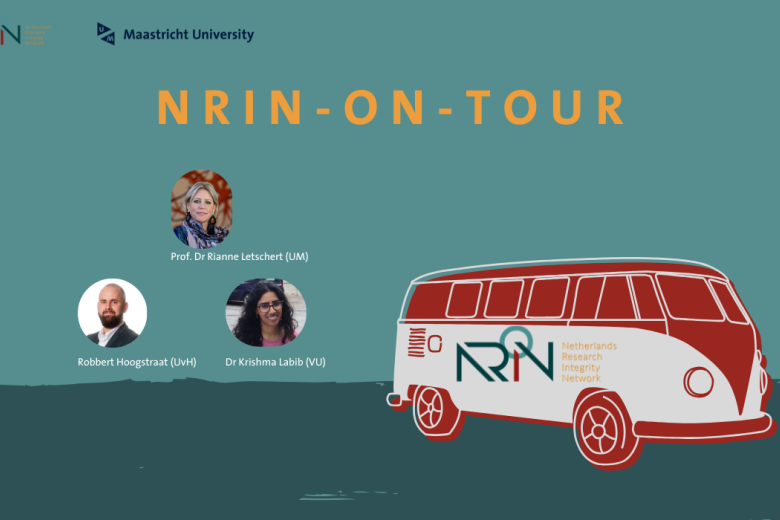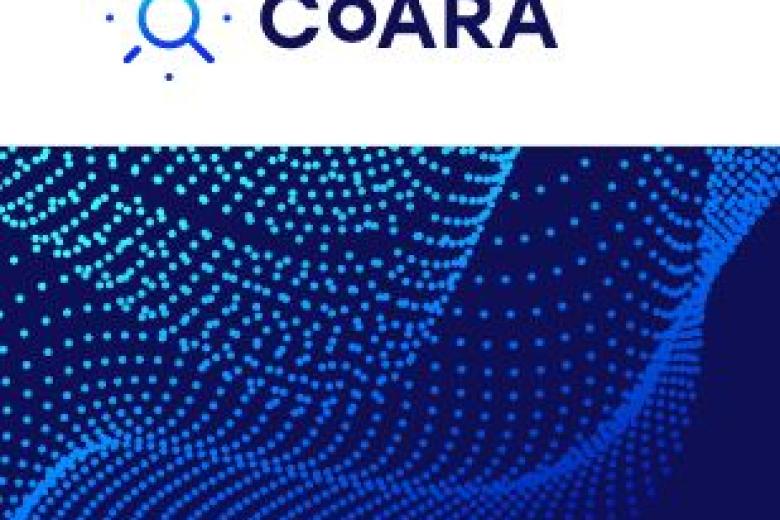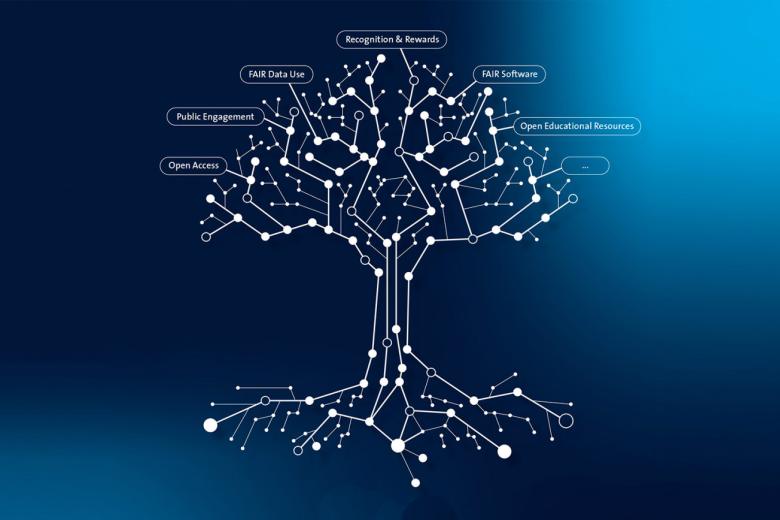Recognition & Rewards
Maastricht University (UM) aims to ensure every employee has a fulfilling career in which their talents are used, recognised and valued. We strive to be an open, inclusive and diverse community of academic citizens who are rewarded based on their own merits.
Alongside other public academic institutions and research funds (UNL, NFU, KNAW, NOW and ZonMW) we are changing the system through which we assess the achievements of our academic staff. In 2019, we jointly published a position paper, Room for Everyone’s Talent, focusing on modernising the Dutch university system. We translated the position paper into an extensive Recognition & Rewards (R&R) programme in which all Dutch universities participate.
Creating a new balance in academic work
Traditionally, not all employee achievements have been recognised and rewarded equally. For academics, their career path was predominantly determined by research performance, in particular quantitative metrics such as research output, citation analyses and acquired grants. The focus on research as an indicator of high performance has often undervalued other crucial academic tasks and increased work pressure and competitiveness. It results in insufficient time and appreciation for development in other areas.
The R&R programme creates a new balance in academic work. UM fully supports this programme, committed to valuing all talents and recognising achievements in education, research, impact, leadership, and patient care.
Watch the Recognition & Rewards video statements about UM's programme, vision and narratives.
Have any questions? Go to the FAQ.
The R&R objectives
Our university’s president Rianne Letschert is co-leading the R&R national programme for the entire university sector together with the rector of the Vrije Universiteit of Amsterdam.
The main objectives of the R&R programme:
- Diversification and vitalisation of career paths: enable more diversity in career paths and profiles for academics.
- Balance between individuals and the collective: assess academics based on both their individual performance and their team performance.
- Focus on quality: provide a better balance between quantitative and qualitative assessment tools.
- Stimulate Open Science: disclose research designs, make data publicly available and encourage academics to put additional effort into making their research outcomes more accessible to society.
- Encourage academic leadership: invest in good leadership at all levels, from young academics to established professors.
Visit the national website for Recognition & Rewards for further information on the national programme and insights into the approaches of other Dutch universities and research centres.
Download the nationwide position paper ‘Room for everyone's talent - towards a new balance in the recognition and rewards of academics'
UM’s vision
UM created a vision document for the R&R programme, linking the nationwide objectives to the values and strategic position of UM. Our vision has a focus on quality over quantity, includes Open Science, updates our PhD track assessment criteria and further defines academic citizenship while balancing the needs of the individual and the organisation.
Our vision for UM’s R&R system encompasses key areas:
- Education
- Research
- Impact
- Leadership
- Patient care (when relevant)
Download the vision document: 'UM's vision on Recognition & Rewards'
UM’s organisational culture and identity
UM has always been ambitious in the areas of innovative small-scale education and interdisciplinary research with demonstrable societal impact. UM’s organisational culture is best described using several key concepts.
- Academic citizenship, the UM community exemplifies the concept of academic citizenship.
- Educational approach, since its inception, UM has been shaped by its focus on innovative, student-centred education.
- Interdisciplinary research, research at UM is mission-driven, and its integration of multiple disciplines helps to contribute to solving regional and international challenges.
- Societal impact, from the founding of the university in 1976, UM has been a vehicle for the economic and intellectual development of the Limburg region and beyond.
- MUMC+ partnership, our strong partnership with the MUMC+ academic hospital is one of the pillars of our embedment in the local community.
- Diversity and inclusivity, UM strives to go well beyond quotas and compliance; we are determined to foster an environment in which everyone is and feels welcome.
- Leadership, well-developed leadership is a precondition to success and therefore considered a key area in itself.
Applying UM’s core values: expectations and examples for staff
Our core values derive directly from our mission and the vision of the R&R programme.
For academic staff, examples are included in the R&R academic profiles. View the different academic profiles on the UM Career Policy & Compass page.
Examples of evidence and behaviours other university staff could display when contributing to the UM core values include:
Academic citizenship
- Contribute to the wider civic mission of the university.
- Demonstrate efforts in making the university an inclusive environment valuing diversity.
- Set up programmes to involve the community in the university.
- Participate in (internal or external) committees or taskforces; organise team events etc.
Personal/professional leadership
- Demonstrate self-reflection and personal development (feedback results).
- Regularly request feedback from students, colleagues and others.
- Effective communication (online and offline).
- Identify the necessary tasks and prioritise them to develop an individual schedule and autonomously perform the work, ensuring that the requirements are met.
- Improvement of processes and procedures.
- Take the lead among peers in a project.
- Provide mentorship to others.
- Provide constructive feedback to help others learn.
- Organise feedback sessions.
- Take part in leadership training and put skills learned to use.
- Demonstrate efforts in making the university an inclusive environment valuing diversity.
- Participate in (internal or external) committees, think tanks, coaching activities or engaging in other forms of talent development etc.
Team performance
- Work confidently within a group with each doing their part in the service of the whole.
- Co-creation with others.
- Collaborate with others outside of the standard circle (outside of your team, department, or faculty/service centre) etc.
Impact & Open Science
- Make your work relevant to society.
- Produce, store and (re)use scientific data based on FAIR (Findable, Accessible, Interoperable, and Reusable) principles, making data as open as possible, and as closed as necessary.
- Use open-source software.
- Use Open Access resources.
- Set up and participate in Open Science events.
- Educate about the application of FAIR principles.
- Educate about the importance of Open Science etc.
Narratives for four key areas
Four committees with representatives from each faculty for the key areas of education, research, impact and leadership have developed narratives about how to recognise and reward performance within their domain. The narratives acted as input to steer the discussion on how to move forward.
At the central level, the R&R programme is managed by Ann Vanderhaeghe and Bruna Calado. They collaborate closely with the faculty liaisons from each faculty to implement the R&R programme effectively. The faculty liaisons are responsible for adapting the central implementation format into a specific implementation plan for their faculties and monitoring its progress. Additionally, they ensure effective communication and raise awareness about the activities and key information related to the R&R programme.
Download the narratives here:
Education Narrative
Research Narrative
Impact Narrative
Leadership Narrative
Read more
NRIN on tour 9 April - Join us!
NRIN, the Netherlands Research Integrity Network organises a presentation and panel discussion on Recognition & Rewards, as well as the latest developments and opportunities presented by the Dutch CoARA chapter.

Frequently asked questions
Do you have questions about R&R? This FAQ offers an overview of frequently asked questions and their answers. Read more about career opportunities, sustainable employability, education, research, leadership and implementation within UM.

UM-CoARA action plan for reforming research assessment
In its action plan, UM pledges commitments regarding research careers, research evaluations, responsible quantitative indicators and rankings and benchmarking.

Recognition & Rewards Culture Barometer findings
In January 2024, the Recognition & Rewards (R&R) national programme conducted a survey among scientists in 26 out of the 27 participating institutions. The findings indicate broad support for the ambitions of the R&R programme and a shifting community mindset. However, this change is not yet noticeable everywhere.
Open Science, open mind
Promoting ‘Open Science’ is one of the priorities of R&R. A new approach in which universities and research institutes worldwide work together to make science "as open as possible, as closed as necessary".

The team developing UM’s R&R system
At UM, the institutional R&R committee consists of the president, the rector, the faculty deans (and/or portfolio holders R&R), the HR director and the R&R programme manager who together lead the programme’s development. The institutional committee facilitates the discussion with the academic community and ensures coherence between the internal discussions and the subsequent proposals. Realising and safeguarding alignment with national developments is also the committee’s responsibility.
Besides the UM-wide commission, other organisations within UM are actively involved in the process of Recognition & Rewards. The Maastricht Young Academy and Female Empowerment UM (FEM) delegate members, and employees from the University Library are involved. Moreover, occasionally members of the Local Consultative Body, the University Council, the Central PhD Candidates Platform (CPCP), and the PhD Platform contribute.
The involvement of the entire UM community in the development of the programme is key to creating a sustainable culture change. Therefore, the commission always remains open to input.